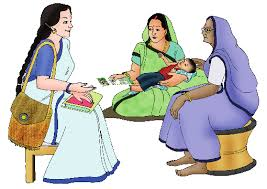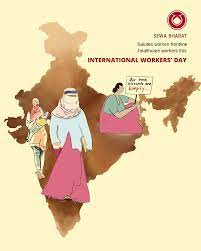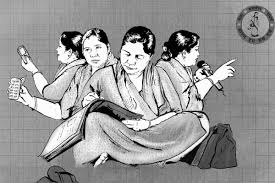In a first, a Session’s Court in Mehsana, Gujarat sentenced a man for 3 years in jail along with a fine of 12000 rupees for sexually harassing an ASHA worker while she was on duty on account of the COVID 19 pandemic in April 2020.

What is the Case?
The man, Kamlesh Patel, an upper caste and upper class man in his 40s harassed a 28 year old ASHA worker, who also happens to be a Dalit during her performance of duty on 23rd of April, 2020.
The man has been charged under The Epidemic Diseases(Amendment)Ordinance, 2020 which was passed by the Union government in light of the rising number of cases against women during the course of the pandemic while performance of their duty.
Additionally, the man has also been charged under SC and ST(Prevention of Atrocities Act), the Disaster Management Act and Section 354A(sexual harassment), Section 332(voluntarily causing hurt to deter public servant from duty) and Section 504(intentional insult with provoke breach of peace) of the IPC.
Who are the ASHA Workers?

Also, called Accredited Social Health Activists, they are the frontline workers who are the “volunteers” responsible for implementation of the National Rural Health Mission across the country. They perform the duty of granting protection to women and children throughout their lifecycle, from birth to death, also providing healthcare services to everyone in the community.
The Unfortunate Plight of the ASHA Workers
The ASHA workers are women who are responsible for service delivery that is the most foundational for a country’s progress. However, while expectations from them continue to persist at an all time high, their concerns and depravities remain ignored.

These women come from the most marginalized corners of the country and thus, their struggle to be able to reach a point where they are able to step out of their highly restrictive households and participate in public welfare challenges the very fabric of patriarchy which has nurtured them to remain in its cradle.
These women are deprived by their very ability to become independent coupled with ascribed inequalities of traditional structures of caste and ethnicity. Their intersectional placement at the lower rungs of the societal structure which they protest by claiming economic mobility places them in a situation of utmost vulnerability.
A research performed by researchers from the Karnataka Health Promotion Trust (KHPT) in association with University of Manitoba, Winnipeg, Canada, and the MS Ramaiah University of Applied Sciences on‘Investigating violence against Accredited Social Health Activists (ASHAs)‘, published in the Journal of Global Health Reports recorded that 32% of them face sexual violence, 88% are victims of economic and emotional violence, 12% of sexual violence and 17% of physical violence is inflicted by their husbands and 64% violence from beneficiaries and their families.
This report presents us with a devastating and disappointing reality of these female warriors. While cases of violence against these frontline workers captured headlines during the course of COVID 19, they have yet again been rendered invisible and their realities sidelined. These women continue to face exploitation and violence through the course of their very existence in society. Cases of lower caste and tribal women being raped, being beaten up, harassed, sometimes even by public officials remain either unattended, suppressed or ignored.
While these women remain deprived as a product of societal ideologies, their material conditions are also not any better. Their employment remains informal and their work casualised depriving them of regular wages, social security and overburdening them with an excess of responsibilities.
In this context, it is important to make note that even the Epidemics Acts which guarantees these women protection in line of their duty is an ordinance.
The need therefore, is firstly, to legally recognise them as employees of the government which will in turn have a multiplier effect of generating their acceptance in society and will also guarantee them with regular wages, social security, pension and protection under labour laws of the country. Additionally, a survey must be conducted across all states about their condition of work, not just economically but also in terms of the violence and discriminatory practices they face during the course of their duty. This data will not only provoke action among policymakers to design a policy that guarantees these women protection and rights but help in formulation of a law that punishes their perpetrators.
These ASHA women are the very nurturers of this country’s future. It is under their care and command that India’s potential demographic dividend will be reaped and societal progress will be achieved. Their role in nation building is invaluable. Thus, these women’s right to safety and liberty to develop as individuals must be protected.













